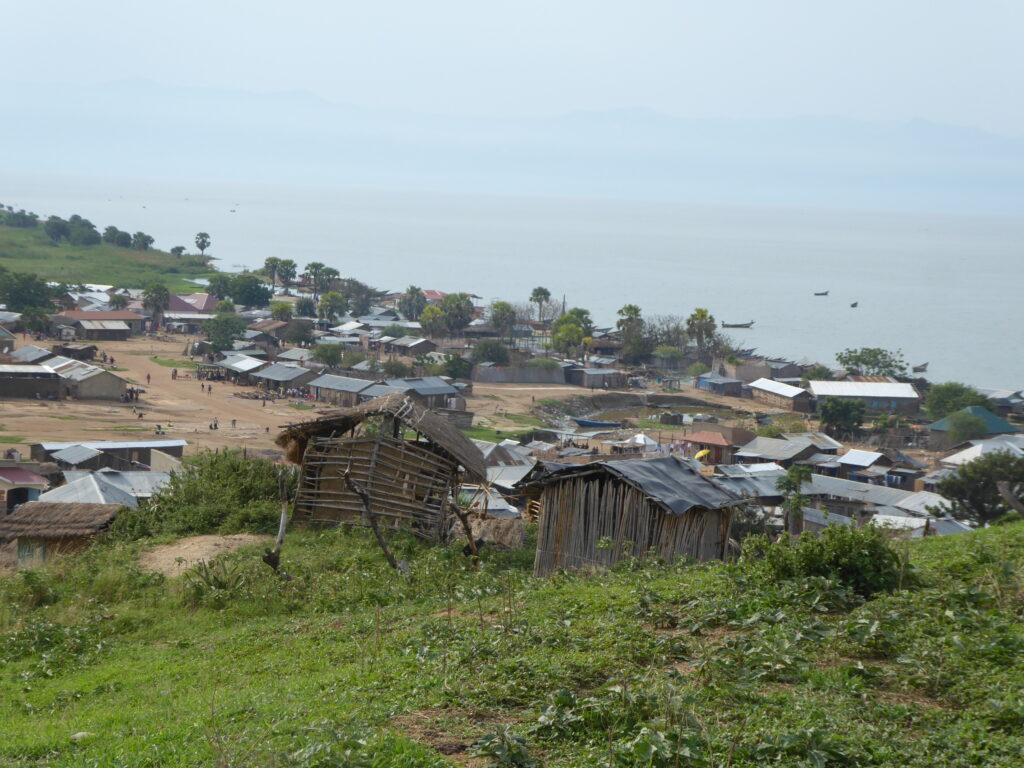The porous borders between South Sudan, Uganda and the Democratic Republic of Congo pass through the northern section of the Albertine Graben. It is a rural area enclosed between the DR Congo’ tropical rainforests and the South Sudanese grasslands, crossed by the White Nile flowing out from Lake Albert. Located far away from the edge of the key centers of their respective Countries, it is a territory transited for migration and trade reasons, from North to South and from West to East. The region, which is well known for its biodiversity and large presence of natural resources, presents in land one of its main assets. Local communities depend on land for subsistence farming and for grazing animals.
In recent years sensitivity on land ownership and tenureship has grown a lot through: ethnic conflicts that emerged over contentious boundary definitions (such as the “Apaa Land Conflict” in Adjumani district, Uganda); the deployment of wildlife conservation and economic development rhetoric from Governments, investors and international agencies to justify large-scale land grabs against rural and indigenous communities; large-scale international projects that involve oil extraction and processing and other raw materials mining, excluding communities from the participatory mechanisms and especially by using compensation frameworks that do not directly benefit these communities (such as the Tilenga project in Buliisa and Hoima districts, Uganda); social emergencies and humanitarian crises (such as the construction of refugee camps in Arua, Yumbe, and Adjumani, Hoima districts, Uganda). This has led to an increase in land rights abuses resulting in mass evictions, along with human rights abuses (physical attacks including killings, imprisonment, beatings, professional limitation, and so on) and environmental crimes including deforestation in protected areas and trafficking in wild animals.
Among the Ugandan districts most affected by these trials, critical situations are reported in Adjumani, Pakwach, Nebbi districts in the West Nile subregion and in Buliisa, Hoima, Kiryandongo districts in Western subregion.
According to Art. 2 of United Nations Declaration on the Rights of Peasants and Other People Working in Rural Areas (resolution adopted by the General Assembly on 17 December 2018), “States shall respect, protect and fulfil the rights of peasants and other people working in rural areas. They shall promptly take legislative, administrative and other appropriate steps to achieve progressively the full realization of the rights set forth in the present Declaration that cannot be immediately guaranteed”. Therefore, all NGOs, Civil Society Organizations (CSOs), communities, indigenous groups and individuals working in the region in defence of land rights as farmers, fisherwomen/fishermen, land owners, and who depend on land for subsistence farming and for grazing animals, exercising their rights in accordance with national and international laws, act as Environmental and Human Rights Defender (EHRD). Only a few groups of EHRDs in the Albertine region specifically deal with the multi-stakeholder dialogue in land rights disputes, promoting environmental accountability, creating civic awareness among local communities, and providing protection and legal support. The work of these people is thwarted by murder attempts, arrests, beatings, threats and harassment, seizure of personal goods, telephone surveillance, eviction from offices, intrusion into residentials, digital surveillance, IT systems hacking, document theft, and so on. Not everyone has received support to manage safely their projects or is equipped with a physical and digital security plan. Moreover, the situation worsened after the Covid-19 pandemic, which obliged members of these organizations to work from private locations.
Next January 2021, in Uganda there will take place the Presidential elections raising several concerns, from the heavy deployment of armed army officers in election related activities, to the shutdown of Internet, mobile money services and social media services, fund blocking, violent clampdown of meetings, blackmail by perpetrators. It is expected that during the election period EHRDs will be involved in these incidents.
This demonstrates that the confrontation involving EHRDs organizations is played in the digital domain in a steady interweaving with the physical one.
Data collection, monitoring and reporting land rights abuses in Albertine Region
A key activity of the EHRDs groups is the maintenance of the monitoring cycle on lands, which is tied with the reporting of violations against land rights, environmental crimes and human rights abuses. Traditionally this is accomplished through the systematic collection of information across territory (as periodic or incident reports) using physical or digital archives guarded in the organization’ offices, shared through emails, or messaging services. These activities mostly require to be carried out in the open field, exposing members involved in reporting to threats.
Requests from EHRDs in Albertine Region on security challenges
As EHRDs organizations, CSOs, communities, collectives, indigenous groups in Albertine region:
- we require a physical and digital security plan, comply with the main security frameworks for organizations, benefit from specific training for the maintenance and use of digital assets, develop tailor-made security protocols for our field of action and local context.
- we ask local, national and international donors, up to the multilaterals that fund our projects and actions, to make accountable the security of members, communities and any stakeholders involved.
- we need a regional security strategy for EHRDs organizations in the Albertine Region developing a documentation system, and allowing for disintermediation in emergency situations affecting local communities (linking the documentation system with a local and flexible response mechanism for incidents).
- we demand for data governance within a secure and transparent institutional framework.
- we require scientific standards in collection methods and analysis to generate data that meet minimum quality requirements for the purpose of documentation, reporting and collection of forensic evidence in legal proceedings, for land rights litigation, environmental crimes and human rights abuses.
- we point out the importance of using safe digital tools to collect periodic and incident reporting, with rigorous storage, management and governance measures for the use and analysis of data collected.



